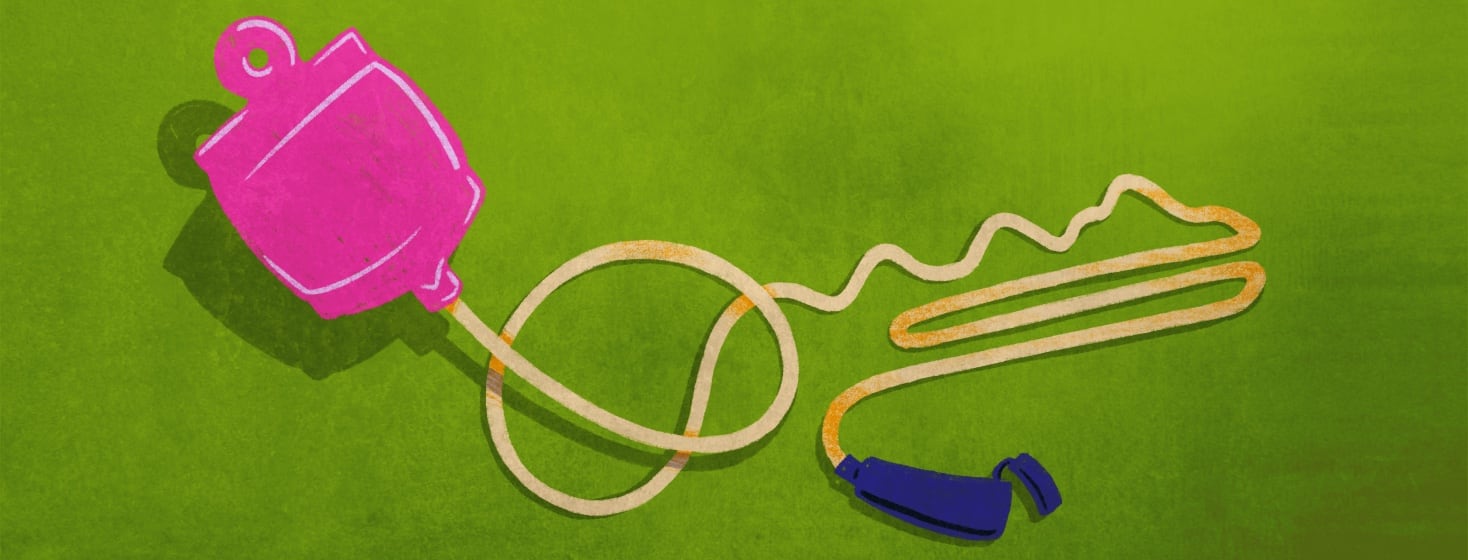My Infusion Essentials
Shortly after my Crohn’s disease diagnosis, I began my first biologic medication - one that was administered every 8 weeks via IV infusion.
As someone who had previously endured multiple hospitalizations, IV medications, tests, and procedures, the idea of infusion medication did not stress me out, but I wasn’t sure what to expect. What would the appointment be like? How long would I be at the hospital? What would I feel like afterward?
How I prepare for IV infusions
I’m now five years into my infusion journey and I feel like I’ve gained a good bit of wisdom on managing IV therapy.
What I do in the days prior
Hydrate, hydrate, hydrate. I can’t stress this enough!! When you are better hydrated, it makes the IV access much easier for the nurses. Your veins are more visible and easier to use when you’re hydrated, and this makes for a smoother experience all around.
Having a good water intake in the days leading up to your infusion will also help your body accept the medication, and, in my experience, it leaves you less likely to experience some of the typical side effects like headaches, dehydration, and fatigue.
Personally, I have found that eating a higher amount of protein the day before my infusion also helps my energy levels and my ability to tolerate the medication.
Essentials to keep in your bag
Wherever you get your infusion medication, you’ll likely be there for several hours. Especially in the times of COVID-19, when you likely cannot have anyone accompany you, it might feel daunting to use up that time and stay calm and relaxed while the medication is flowing into your IV. Here are some suggestions on what to pack in your bag (or have nearby):
- A water bottle
- Snacks!! This is huge for me and I’m always in the camp that I can’t have too many snack options. Sometimes I don’t eat anything, but more often than not, I’m really grateful to have some things to munch on. My old infusion center was in the same building as a restaurant and patients could order breakfast or lunch to be delivered during the appointment. It was great!
- Entertainment - This may vary from person to person, but I’ve always found that my phone, tablet, or laptop are my best option. I usually opt to watch something and often fall asleep during my infusion time. Other ideas include a book, a small craft like knitting or coloring, a journal, or a book of crossword puzzles. (Note: for anything electronic, you’ll want to make sure you have a charger/charging cable and/or a portable battery!)
- Headphones/Airpods - If you’re hoping to watch something in a public space (like an infusion center or the hospital), you’ll also want to bring headphones so as to not disturb other patients.
- A small blanket! Many infusion centers and hospitals offer these, but I’ve always been a bigger fan of my own. Something not too large that I can fold or roll up and throw in my shoulder bag has been a huge comfort to me, especially when I’m feeling exhausted and want to rest.
If there’s anything else in your infusion essentials list, please comment below. I’d love to hear about them!

Join the conversation